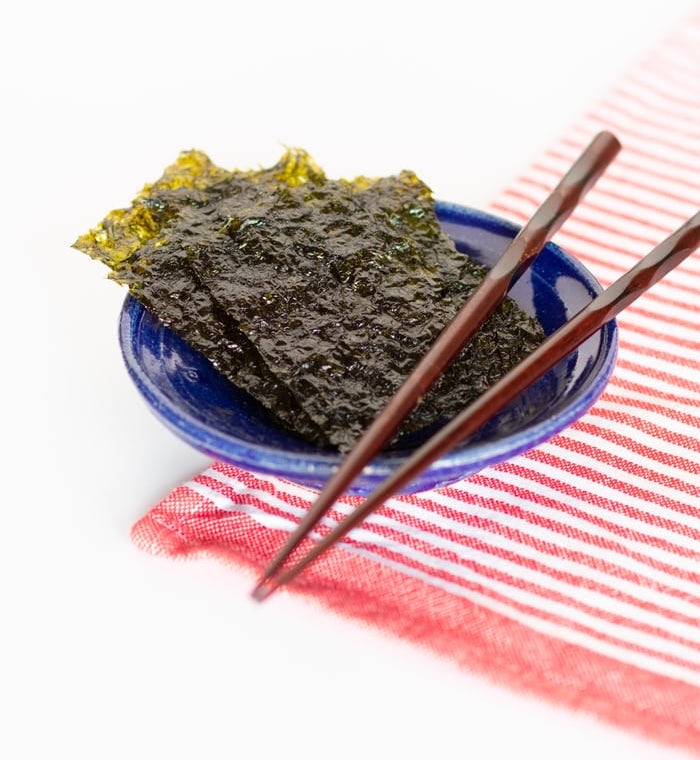In the quest for better nutrition, many are turning to seaweed as a viable vegetable option. This aquatic plant is packed with essential nutrients, making it a fantastic addition to a balanced diet. However, a common question arises: how much seaweed do I need for daily vegetable need? With the rise of plant-based diets and a growing awareness of the health benefits of seaweed, understanding its role in our daily intake is crucial. Seaweed is not only rich in vitamins and minerals but also boasts a unique flavor profile that can enhance various dishes. As people seek to diversify their vegetable consumption, incorporating seaweed may provide the nutritional boost needed to meet daily requirements.
But before diving into the specifics of seaweed consumption, it’s essential to consider the recommended daily vegetable intake. According to health guidelines, adults should aim for 2 to 3 cups of vegetables daily, depending on their age, gender, and level of physical activity. Seaweed, being a vegetable, can contribute significantly to this quota. However, the question remains: how much seaweed do I need for daily vegetable need? This article will explore this question, alongside the nutritional benefits of seaweed and practical tips for incorporating it into your meals.
As we explore the intricacies of seaweed consumption, we'll also touch upon the various types of seaweed available and their unique health benefits. Whether you're a seasoned seaweed enthusiast or just curious about this marine vegetable, understanding the right amount to consume can help you optimize your diet and enhance your overall well-being.
What Are the Nutritional Benefits of Seaweed?
Seaweed is a powerhouse of nutrients, offering a variety of health benefits that can complement your daily vegetable intake. Here are some key nutrients found in seaweed:
- Vitamins: Seaweed is rich in vitamins A, C, E, and K, which are crucial for maintaining skin health, boosting immunity, and supporting vision.
- Minerals: It contains essential minerals like iodine, calcium, iron, and magnesium, which are vital for thyroid function, bone health, and overall metabolic processes.
- Antioxidants: Seaweed is packed with antioxidants that help combat oxidative stress in the body, reducing the risk of chronic diseases.
- Fiber: The high fiber content in seaweed aids digestion and promotes gut health.
How Much Seaweed Do I Need for Daily Vegetable Needs?
To determine how much seaweed you need for daily vegetable needs, it’s essential to consider the serving sizes of different types of seaweed. Generally, a serving size of seaweed is about:
- 1-2 tablespoons of dried seaweed (like nori or dulse)
- 1/4 to 1/2 cup of cooked seaweed (like kelp or wakame)
As seaweed is nutrient-dense, even small amounts can contribute significantly to your daily vegetable intake. Therefore, incorporating seaweed into meals such as salads, soups, or sushi can help you meet your vegetable requirements effectively.
Can Seaweed Replace Other Vegetables?
While seaweed offers numerous health benefits, it should not entirely replace other vegetables in your diet. Each vegetable provides a unique array of nutrients and health benefits. Instead, consider seaweed as a complementary ingredient that enhances your meals while contributing to your vegetable intake.
What Types of Seaweed are Best for Daily Consumption?
There are several types of seaweed, each with its unique flavor and nutrient profile. Some of the most popular types include:
- Nori: Commonly used in sushi, nori is rich in vitamins and minerals.
- Kombu: Often used in broths and soups, kombu is high in iodine.
- Wakame: A popular addition to salads and miso soup, wakame is known for its health benefits.
- Dulse: This red seaweed can be eaten dried or cooked and is a great source of potassium.
How to Incorporate Seaweed into Your Diet?
Incorporating seaweed into your diet can be both enjoyable and beneficial. Here are some tips:
- Add nori sheets to your sushi rolls or use them as a wrap for sandwiches.
- Sprinkle dried seaweed flakes over salads for an umami flavor boost.
- Use kombu to enhance the flavor of soups and stews.
- Make a seaweed salad with wakame, sesame oil, and vinegar.
Are There Any Risks Associated with Eating Seaweed?
While seaweed is generally safe to eat, there are some considerations to keep in mind:
- Iodine Sensitivity: Some individuals may be sensitive to iodine, which is abundant in certain seaweeds. It’s advisable to consume seaweed in moderation.
- Heavy Metals: Seaweed can absorb heavy metals from the ocean. Thus, sourcing high-quality seaweed from reputable suppliers is crucial.
Conclusion: How Much Seaweed Do I Need for Daily Vegetable Need?
In conclusion, seaweed can be an excellent addition to your daily vegetable intake, offering a range of nutrients and health benefits. While the general recommendation is to consume 1-2 tablespoons of dried seaweed or 1/4 to 1/2 cup of cooked seaweed, always consider your overall dietary needs. Remember that variety is key in achieving a balanced diet, and seaweed can serve as a flavorful and nutritious component of your vegetable intake.
So, how much seaweed do I need for daily vegetable need? The answer lies in moderation and variety. By incorporating seaweed into your meals alongside other vegetables, you can enjoy the best of both worlds and nourish your body effectively.
Article Recommendations
- Saxon Musk
- Kim Scott Mathers Today
- Rib Tattoos For Men
- Actors Superbad
- How Do You Remove A Scratch From A Windshield
- Midwife And The Baker
- Full Potential
- Timothy Bass Murder
- Bru And Anna Sitar
- Joe Metheny
Also Read


